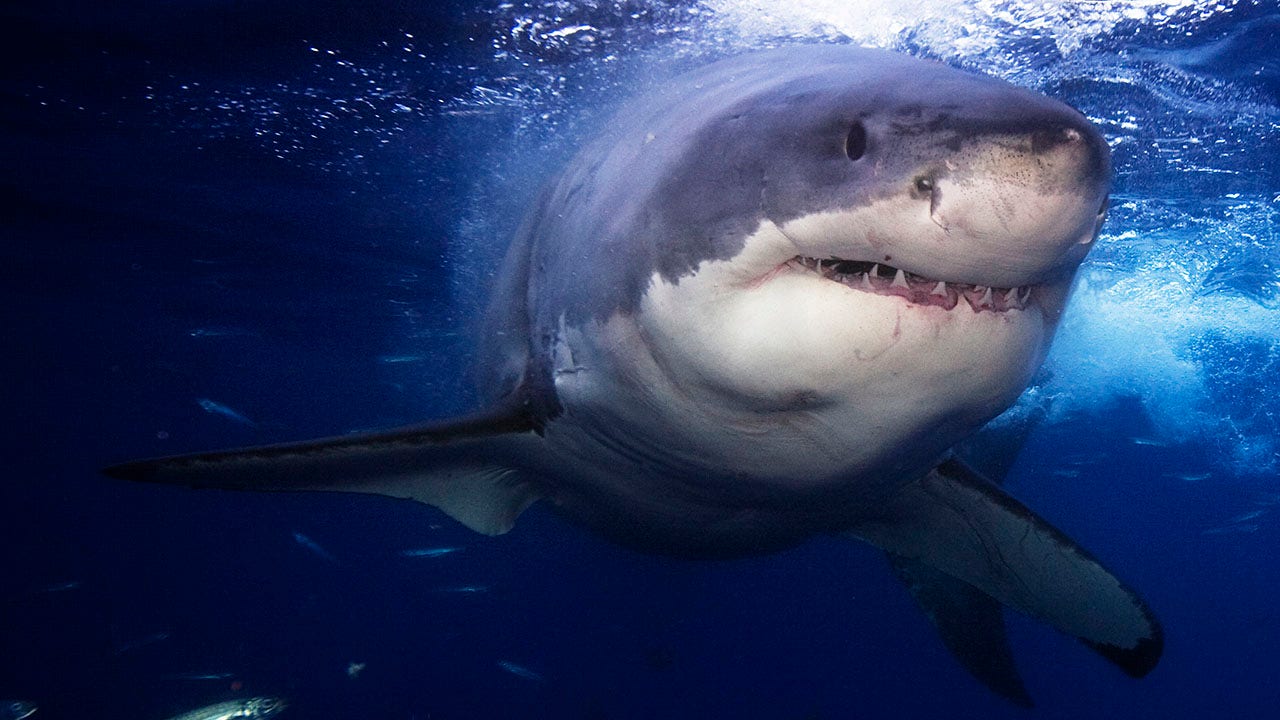It might be summer, but it’s not vacation season for sharks.
According to a shark tracking website, several large great white sharks have been spotted swimming near beaches in New York, New Jersey and Massachusetts. While the group stressed that shark attacks aren’t common, it’s still worth remembering that it’s important to be safe in the ocean.
Ocearch is a research foundation that tags and tracks sharks across the ocean. The foundation has tagged a variety of sharks across the world, but according to its website, many of these sharks are currently swimming up the east coast of the United States.
WOMAN FINDS RARE, 19TH CENTURY PORCELAIN DOLL ON SCOTTISH BEACH
The group’s founder, Chris Fischer, spoke with the New York Post about his work and urged people to remember that attacks are infrequent. He did say, however, that it’s important to remember that the ocean is technically the wild.
“The moment you’re 3 feet in the ocean, you’re in the wild, and you’ve taken a risk,” he continued. “It’s the same thing as wandering off into the woods without protection or unprepared during bear season — you might get yourself killed.”
FOLLOW US ON FACEBOOK FOR MORE FOX LIFESTYLE NEWS
The Ocearch site is currently tracking several sharks in the Atlantic ocean and, according to its data, several have been spotted near the New York/New Jersey coastline. Rose, a 600-lb female that measures over 10-feet-long was spotted near Delaware and southern New Jersey last week.
Martha, a 184-pound shark, was spotted further up the New Jersey coast yesterday.
According to the New York Post, the largest shark being tracked is Nukumi, who weighs over 3,500-lbs and measures in at a massive 17-feet-long. She was last spotted, however, out in the Atlantic, although she has been known to swim up and down the east coast during the later months of the year.
CLICK HERE TO GET THE FOX NEWS APP
As of Sunday, the site is currently tracking about 13 great whites swimming near the New York/Jersey coastline. According to Fischer, the sharks will likely migrate back down the coastline after late summer hits.






